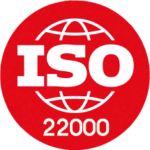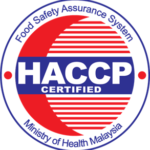Halal and Food Safety Through Silo Cleaning in Malaysia
Enhancing Halal and Food Safety Compliance Through Silo Cleaning in Malaysia: A Comprehensive Guide
 In Malaysia, where the halal food industry is thriving and food safety regulations are stringent, ensuring compliance with halal standards, Hazard Analysis and Critical Control Points (HACCP), Good Manufacturing Practices (GMP), ISO 22000, and Skim Pensijilan Makanan Selamat Tanggungjawab Industri (MeSTI) guidelines is paramount for food manufacturers.
In Malaysia, where the halal food industry is thriving and food safety regulations are stringent, ensuring compliance with halal standards, Hazard Analysis and Critical Control Points (HACCP), Good Manufacturing Practices (GMP), ISO 22000, and Skim Pensijilan Makanan Selamat Tanggungjawab Industri (MeSTI) guidelines is paramount for food manufacturers.
One often overlooked yet crucial aspect of achieving such compliance is the cleaning of silos used for storing various food ingredients.
Silo cleaning plays a vital role in preventing contamination, maintaining product integrity, and upholding the standards of halal certification and HACCP principles.
Lets explore the significance of silo cleaning in Malaysia’s halal and HACCP compliance framework and provides insights into best practices for effective silo cleaning procedures.
Understanding halal certification in Malaysia
 In Malaysia, the halal certification process is governed by the Department of Islamic Development Malaysia (JAKIM) or state Islamic religious authorities.
In Malaysia, the halal certification process is governed by the Department of Islamic Development Malaysia (JAKIM) or state Islamic religious authorities.
Halal certification ensures that food products comply with Islamic dietary laws, including the prohibition of certain ingredients such as pork and alcohol, as well as adherence to specific processing and handling practices.
Contamination with non-halal substances is strictly prohibited, making thorough cleaning of equipment and storage facilities, including silos, essential for maintaining halal integrity.
The role of HACCP in food safety
 HACCP is a systematic approach to identifying, evaluating, and controlling food safety hazards throughout the food production process.
HACCP is a systematic approach to identifying, evaluating, and controlling food safety hazards throughout the food production process.
Developed by the Codex Alimentarius Commission, HACCP principles focus on proactive measures to prevent hazards rather than relying solely on end-product testing.
Implementing HACCP involves conducting hazard analysis, establishing critical control points, implementing control measures, and monitoring procedures to ensure food safety.
Proper cleaning and sanitation of equipment, including silos, are integral components of HACCP plans to prevent cross-contamination and microbial growth.
Significance of silo cleaning in Halal and HACCP compliance
Silo cleaning plays a crucial role in ensuring compliance with both halal standards and HACCP principles in Malaysia’s food industry. Here’s how silo cleaning contributes to halal and HACCP compliance:
- Prevention of Cross-Contamination: Silos used for storing food ingredients must be thoroughly cleaned to prevent cross-contamination between halal and non-halal products. Residues from previous batches or contaminants such as dust, pests, or microorganisms can compromise halal integrity and pose food safety hazards if not properly removed.
- Control of Microbial Growth: Proper cleaning and sanitation of silos help control microbial growth, reducing the risk of foodborne illnesses and ensuring food safety. Microbial contamination can occur if silos are not cleaned regularly, leading to the proliferation of pathogens and spoilage organisms.
- Adherence to Halal Processing Requirements: Halal certification requires adherence to specific processing and handling practices, including the use of halal-compliant cleaning agents and procedures. Silo cleaning must be conducted in accordance with halal guidelines to avoid any contamination with non-halal substances, such as animal-derived ingredients or alcohol-based cleaners.
- Compliance with HACCP Principles: Silo cleaning is an essential component of HACCP plans aimed at controlling food safety hazards. By implementing effective cleaning procedures and monitoring the cleanliness of silos as critical control points, food manufacturers can mitigate the risk of contamination and ensure compliance with HACCP principles.
- Quality Assurance: Clean silos contribute to maintaining the quality and freshness of food products. Residue buildup or contamination can affect the sensory attributes of food, leading to issues such as off-flavors, odors, or texture changes. By keeping silos clean, food manufacturers can uphold product quality standards and enhance consumer satisfaction.
- Consumer Confidence and Market Access: Adherence to halal and HACCP standards through proper silo cleaning practices enhances consumer confidence in the safety and integrity of food products. Halal-certified and HACCP-compliant products are not only sought after by Muslim consumers but also appeal to health-conscious individuals seeking high-quality, safe food options. Moreover, compliance with international food safety standards facilitates market access and export opportunities for Malaysian food manufacturers.
Best practices for silo cleaning in Halal and HACCP compliance
To ensure effective silo cleaning and compliance with halal and HACCP requirements, food manufacturers in Malaysia should adopt the following best practices:
- Developing Standard Operating Procedures (SOPs): Establish comprehensive SOPs for silo cleaning, including detailed instructions on cleaning agents, equipment, frequencies, and documentation procedures. SOPs should be tailored to the specific requirements of halal certification and HACCP plans.
- Using Halal-Compliant Cleaning Agents: Select cleaning agents and sanitizers that are certified halal and approved for use in food processing facilities. Avoid using products containing non-halal ingredients or alcohol, which may compromise halal integrity.
- Implementing Cleaning Verification Procedures: Implement procedures to verify the effectiveness of silo cleaning, such as visual inspection, swab testing for microbial contamination, or chemical analysis for residue detection. Verification activities should be documented and incorporated into HACCP monitoring plans.
- Training Personnel: Provide training to personnel involved in silo cleaning operations, emphasizing the importance of halal compliance, food safety principles, and proper cleaning techniques. Ensure that staff are competent in handling cleaning equipment and chemicals safely.
- Establishing Cleaning Schedules: Develop regular cleaning schedules for silos based on factors such as usage frequency, product turnover, and risk assessments. Assign responsibilities for cleaning tasks and monitor adherence to cleaning schedules to prevent lapses in hygiene practices.
- Conducting Regular Audits and Inspections: Conduct internal audits and inspections to assess the effectiveness of silo cleaning procedures and identify areas for improvement. Involve halal certification bodies, regulatory authorities, or third-party auditors in external audits to ensure compliance with halal and HACCP requirements.
Conclusion
In Malaysia’s dynamic food industry landscape, ensuring compliance with halal standards and HACCP principles is essential for maintaining food safety, integrity, and market competitiveness. Silo cleaning plays a pivotal role in achieving halal and HACCP compliance by preventing contamination, controlling microbial growth, and upholding quality assurance standards. By implementing effective silo cleaning procedures and adhering to best practices, food manufacturers can demonstrate their commitment to halal integrity, food safety, and consumer satisfaction in the Malaysian and global markets.


